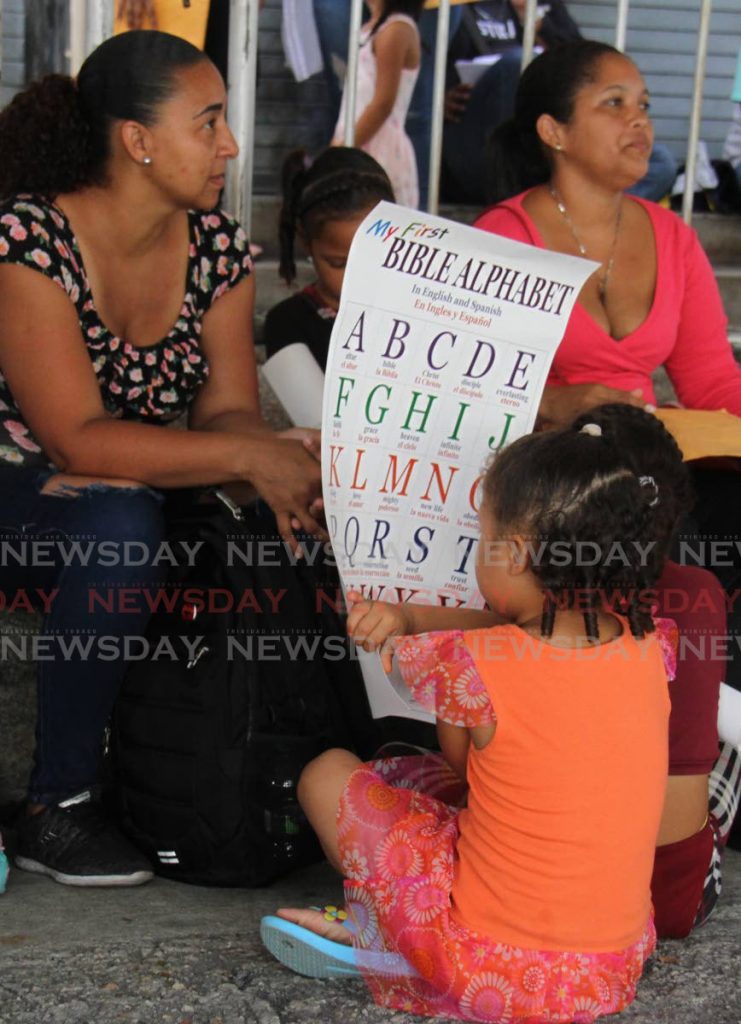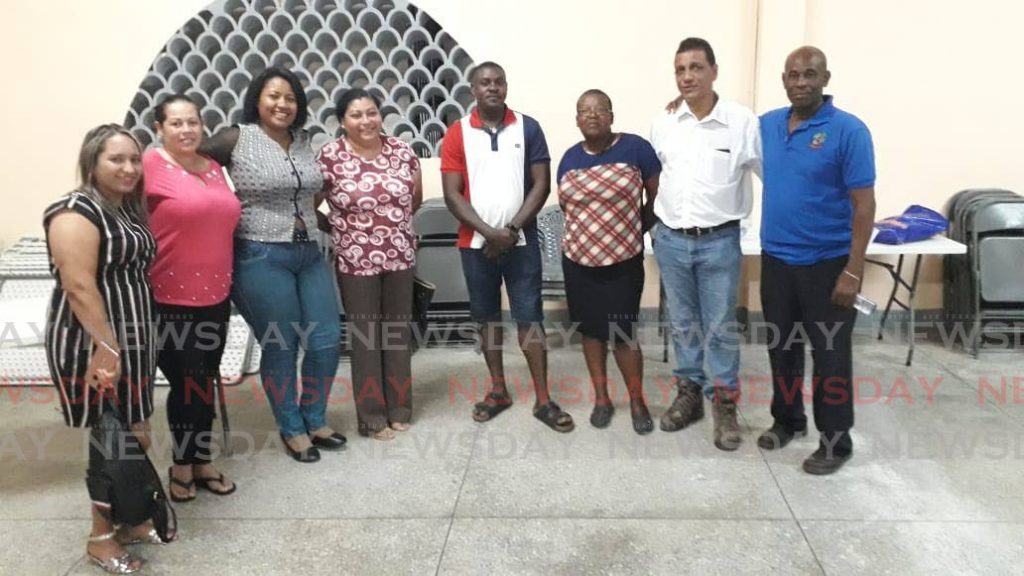Few places for refugee children to learn

María Fernández arrived in TT from Venezuela in March 2019 with her two daughters, aged 13 and seven respectively. They came, seeking a better life than their homeland with its political and civil turmoil.
One year later though their dreams of greater security and comfort in a new land, seem all but dashed. The children now find themselves growing up without the opportunity to study, becoming victims and statistics of what they feel to be harsh immigration regulations which impede children worldwide, and who are forced to leave their places of origin with their parents, to continue their education and training.
"The children of immigrants do not really have the same social conditions as the rest," says María in an interview with Sunday Newsday.
Although there are no official figures provided by the TT government, nor by international organisations such as UNHCR or the Living Water Community, on the number of children who are here as refugees, there are hundreds, even thousands of Venezuelans under the age of 18 who have been able to enter the TT educational system.
The efforts of the Catholic Church and of the institutions that care for the rights of immigrants remain constrained.
Next June marks one year of completing the registration process for work permits for Venezuelan refugees here, which opened a legal possibility for their children to enter local schools.
But it has not been that way. Representatives of the TT government have declined to speak on the educational issue surrounding refugee children.
"I came legally to TT, I participated in the work registry, I have my card and my daughters are registered, I thought that this could be the key so that they could enter public education here, but it is quite the opposite. They continue without studying, growing without formal education and without having the certainty of what will happen to us in the coming months,” said María.
She and her daughters live in a room with two cousins who also came from Venezuela. Lack of food, medicine, public services and employment forced them to leave their country.
The TT government officially registered just over 16,000 Venezuelans, but international organisations say that there are many more refugees, although without specifying numbers.
The United Nations has identified four million Venezuelan immigrants in 78 countries around the world, who are frequently discriminated and who are limited in accessing basic health, education, mobility and social participation rights.
However, most of these nations have agreed to receive children in public schools.
"We are human beings and we do not have the decision of where we want to be born, our children are not to blame for the good or bad actions of the governments and they have the right to study like the children of the rest of the world," added María.

She emphasised that the vast majority of Venezuelans think of returning to their homes when the crisis in their country ends.
Studies without progress
Although UNHCR opened the Equal Place educational system for refugee children, many do not participate.
"My son received a tablet so that he can continue to carry out activities in a virtual way due to the quarantine for the covid19, but I do not see significant advances in educational matters, only recreational," acknowledged Luis Ontiveros.
Her son is seven years old and participates in the programme in San Fernando.
"We don't know what will happen, nobody explains anything to us, nor do the teachers know it," added Luis.
The Venezuelan man said that a meeting earlier this year, teachers informed them that there was the possibility of including some children in the new public school period of TT.
"We cannot be sure of this if the government does not report it, the job cards began to expire and we only know that they are automatically renewed for six more months, but once the year is up...we are in the air and our children just the same,” he acknowledged.
TT Education Minister Anthony Garcia announced recently the date changes for the close of this school year and the start of next due to the pandemic, but without talking about the placement of Venezuelan children. Another group of parents is even more concerned, as their children were also unable to enter the Equal Place programme.
"I personally went to UNHCR to register my daughters, I made the corresponding registration, but when I took her to the assigned school, the teachers did not let them in because apparently the system did not register them and that affected my daughters emotionally," said Marlene Sosa, another Venezuelan immigrant.
She said, "If it is a system of aid to all refugee children, they should not reject any."
2,000 refugee children in TT
UNHCR officials reported that right now there are 2,000 refugee boys and girls (55 per cent male and 45 per cent female), between 5-17 years old. They noted that 90 per cent are Venezuelans. According to the most recent figures, 600 boys and girls are studying through the Equal Place programme.
Espacio de Equidad, has eight locations throughout TT. UNHCR is said to be looking for more spaces to reach more refugees via at least eight more educational centres for this year, although that depends on the consequences of covid19.
"It is a service programme, the fundamental idea is access to online education in both English and Spanish, the intention is that those registered can study and receive education," said one of the UNHCR officials.
For now the programme has 40 teachers between Trinidadians and Venezuelans. They recognised that UNHCR is one more member of a broad group that is seeking the education and training of refugee children. He said that through the Catholic Church, the government granted permission to searching for spaces in the local educational system that the Catholic Church manages.
"This is the first step to ensure that all children can enter to study in the local educational system, we are working to make this possible," he said.
Last December, Archbishop of Port of Spain Jason Gordon said among the Catholic Church's top priorities were enrolling migrant children in schools and said the Catholic Education Board of Management were working with other stakeholders to accommodate children.


Comments
"Few places for refugee children to learn"